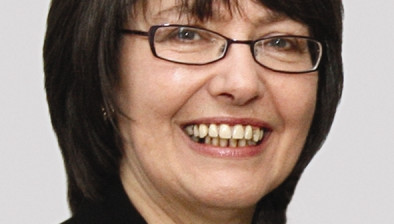Police chiefs set out reforms in apology to Hillsborough families

Credit: Edmund N Gall, CC BY-SA 4.0
UK police chiefs have apologised for having “profoundly failed” the families of the 96 people unlawfully killed in the 1989 Hillsborough disaster.
Leaders from the College of Policing and the National Police Chiefs’ Council (NPCC) today set out their response to an independent report which was commissioned by the UK government and published more than five years ago.
In the 2017 report, Bishop James Jones called for a charter for families bereaved through public tragedy; ‘proper participation’ of bereaved families at inquests; and a duty of candour which should require serving or retired police officers to cooperate fully with police conduct investigations.
The police response, which is only being made public now following “the conclusion of legal proceedings and other matters”, sets out a number of reforms which have been adopted by the College of Policing and NPCC.
All police forces in England and Wales have signed up to a Charter for Families Bereaved Through Public Tragedy, which sets out that police organisations must acknowledge when mistakes have been made and must not seek to defend the indefensible.
A new code of practice on police information and records management has been submitted to the Home Office for ministerial approval, following which it can be laid before Parliament in accordance with the Police Act 1996.
The College of Policing’s code of ethics, applicable to everyone working in policing, will be revised this year and candour will be a “key theme”. A supporting code of practice will state that “chief officers have a responsibility to ensure openness and candour within their force”.
New national guidance for family liaison officers has been issued, incorporating learning from the Hillsborough Families Report, the Grenfell Tower tragedy and the 2017 terrorist attacks.
The College of Policing released updated disaster victim identification authorised professional practice (APP) in August 2018 in direct response to the report, including an explicit statement that the terms ‘belonging to’ or ‘property of the coroner’ should not be used in future disasters.
Chief constable Andy Marsh, CEO of the College of Policing, said: “Policing has profoundly failed those bereaved by the Hillsborough disaster over many years and we are sorry that the service got it so wrong. Police failures were the main cause of the tragedy and have continued to blight the lives of family members ever since.
“When leadership was most needed, the bereaved were often treated insensitively and the response lacked coordination and oversight.
“Today’s report explains long-term, and more recent, developments in how the police responds to mass fatality incidents. Hillsborough is a touchstone for long-lasting change in policing and there is a commitment from the leadership in policing to create a modern, dynamic police service which acts without fear or favour, and with integrity and empathy.”










